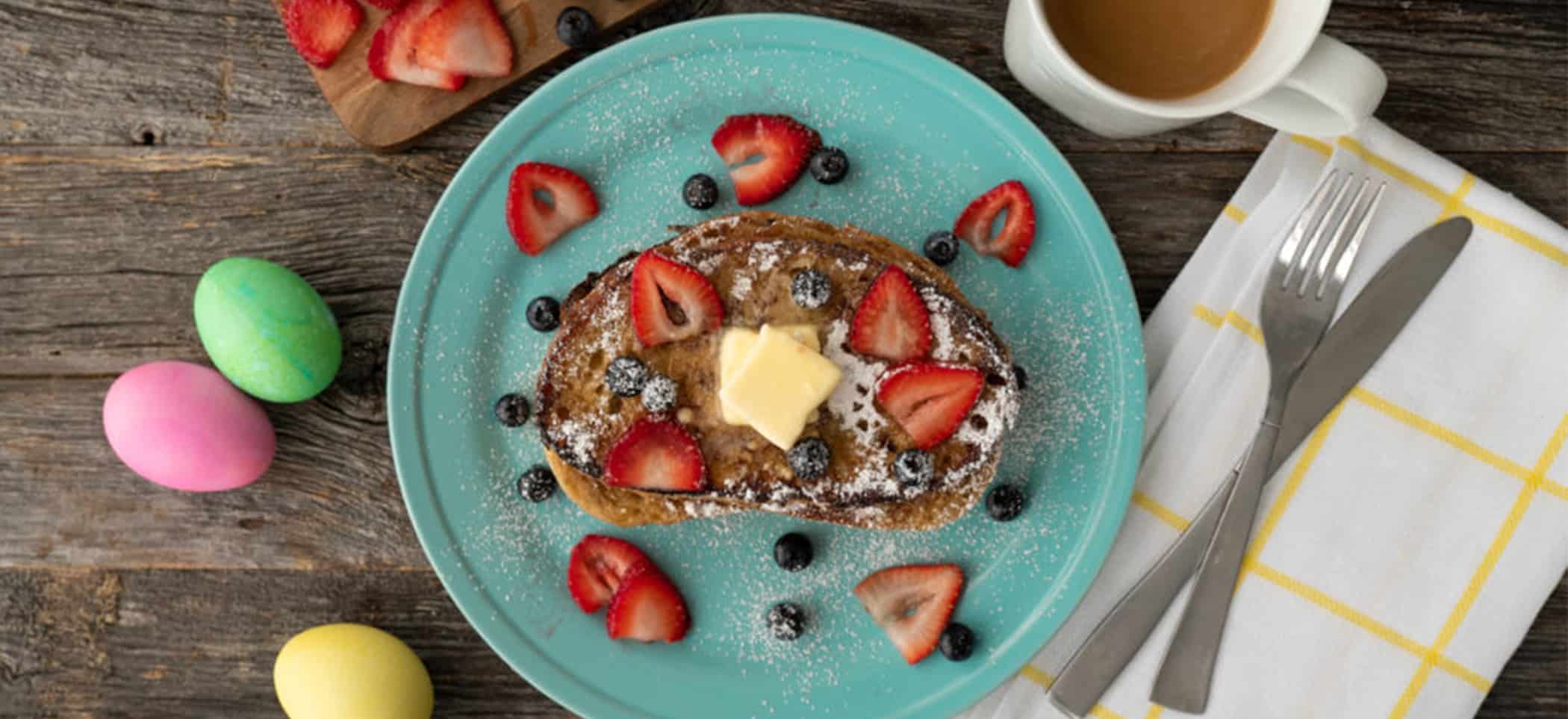

Directions
BEAT eggs, milk and nutmeg in shallow dish until blended. SOAK one bread slice at a time in egg mixture, turning once, letting stand about 1 minute per side.
HEAT lightly greased large nonstick skillet over high heat until hot.
PLACE as many bread slices in hot pan as will fit in single layer. Immediately REDUCE heat to medium. COOK until golden brown and no visible liquid egg remains, 2 to 3 minutes per side. REPEAT to cook remaining bread. SERVE immediately.
Ingredients
- 8 large EGGS
- 1/3 cup milk
- 1/4 tsp. ground nutmeg, OPTIONAL
- 8 slices day-old bread
Tips
Faster and easier than pancakes, this breakfast favorite can be jazzed up by adding extract, grated citrus peel, fruit juice or liqueur to the batter or by using a different style of bread.
Any bread you like will work – French, Italian, raisin, cinnamon-raisin, whole-grain or multi-grain. Bread that has become a little dry (day-old) is recommended.
If bread is very fresh, before using, spread in single layer on a clean towel or baking sheets; let stand, uncovered, 1 to 2 hours, turning once.
Oven method: Place soaked bread in single layer on well-greased baking sheet. Bake in preheated 500°F oven 6 minutes. Turn slices; spread with butter, if desired. Continue baking until golden brown and no visible liquid egg remains, 3 to 4 minutes longer. Serve or freeze for later use.
To freeze French toast, cool slices on wire rack. Place in single layer on baking sheet and freeze 1 to 2 hours. Wrap airtight in serving-size portions; freeze up to 1 month. To reheat, unwrap slices and heat in toaster, toaster oven or on an ungreased baking sheet in preheated 375°F oven for 8 to 10 minutes.
This recipe is an excellent source of protein, choline and folate, and a good source of vitamin A and vitamin D.
Per serving: 1/4 of recipe
- Calories 176
- Total fat 12 g
- Saturated fat 4 g
- Polyunsaturated fat 3 g
- Monounsaturated fat 4 g
- Cholesterol 374 mg
- Sodium 426 mg
- Carbohydrates 29 g
- Fiber 2 g
- Sugar 5 g
- Protein 18 g
- Vitamin A 166 mcg
- Vitamin D 2 mcg
- Folate 110 mcg
- Choline 305 mg
- Calcium 161 mg
- Iron 4 mg
- Potassium 237 mg
To ensure food safety, eggs should be cooked until both the yolk and the white are firm. Consuming raw or undercooked eggs may increase your risk of foodborne illness, especially for those with certain medical conditions. For recipes that call for eggs that are raw or undercooked when the dish is served, use either pasteurized shell eggs that have been treated to destroy Salmonella, or use pasteurized egg products.
